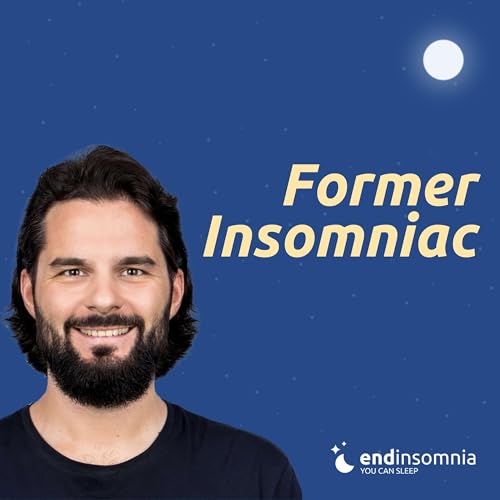
The Most Overlooked Skill In Insomnia Recovery
Failed to add items
Add to basket failed.
Add to Wish List failed.
Remove from Wish List failed.
Follow podcast failed
Unfollow podcast failed
-
Narrated by:
-
By:
About this listen
Let’s talk about something that doesn’t get enough attention when it comes to insomnia:
How you treat yourself when things are hard.
Most people are kinder to others than they are to themselves.
And if you’re like many people struggling with insomnia, you may find yourself thinking things like:
- “What’s wrong with me?”
- “Why can’t I just sleep like a normal person?”
- “I’m such a mess.”
That internal tone?
It matters. A lot.
Harsh self-talk doesn’t help you sleepYou might think being tough on yourself will push you to “try harder” or “get it together.”
But research shows the opposite.
Self-criticism actually increases your stress levels and activates threat centers in the brain.
This puts your body on high alert - making it even harder to sleep.
In fact, a review of 48 studies found that self-criticism is linked to depression, anxiety, eating disorders, and more.
It doesn’t create change - it creates shame, frustration, and stuckness.
A better way: Self-compassionSelf-compassion is not indulgent or weak. It’s practical.
When you respond to your suffering with care instead of criticism, you shift your nervous system from fight-or-flight into a calmer, more restful state.
In other words:
Self-compassion reduces the “sleep-stopping force” that fuels insomnia in the first place.
Instead of adding dirty pain (shame, blame, judgment), you create space for healing.
Try this: Talk to yourself like you would a friendThink of a recent moment where you were struggling - maybe during a hard night or a rough morning after.
Now imagine your closest friend told you they were going through that exact experience.
- What would you say to them?
- Would you shame them for not handling it better?
- Or would you offer words of care and understanding?
Take those same words - and speak them to yourself.
It might feel awkward at first.
But with practice, it gets easier.
And over time, your brain learns that it’s safe to suffer without self-punishment.
That’s when real healing can begin.
You didn’t choose this, but you can change itInsomnia is not a personal failing.
It’s a pattern your brain got stuck in after perceiving a threat around sleep.
But every time you respond to your struggle with compassion instead of criticism, you send a signal to your brain that the threat is lessening.
You’re not broken. You’re human.
You’re doing your best.
And you deserve your own kindness - especially on the nights that feel the hardest.
To peaceful sleep,
Ivo at End Insomnia
Why should you listen to me?
I recovered from insomnia after 5 brutal years of suffering. I also wrote a book about it. I've now coached many on how to end their insomnia for good in 8 weeks.
- Looking for a deep dive into the End Insomnia System? Start with the End Insomnia book on Amazon.
- If you are committed to ending insomnia for good in 8 weeks, 100% naturally, book a call today to see if we can help: http://endinsomnia.co/podcast



